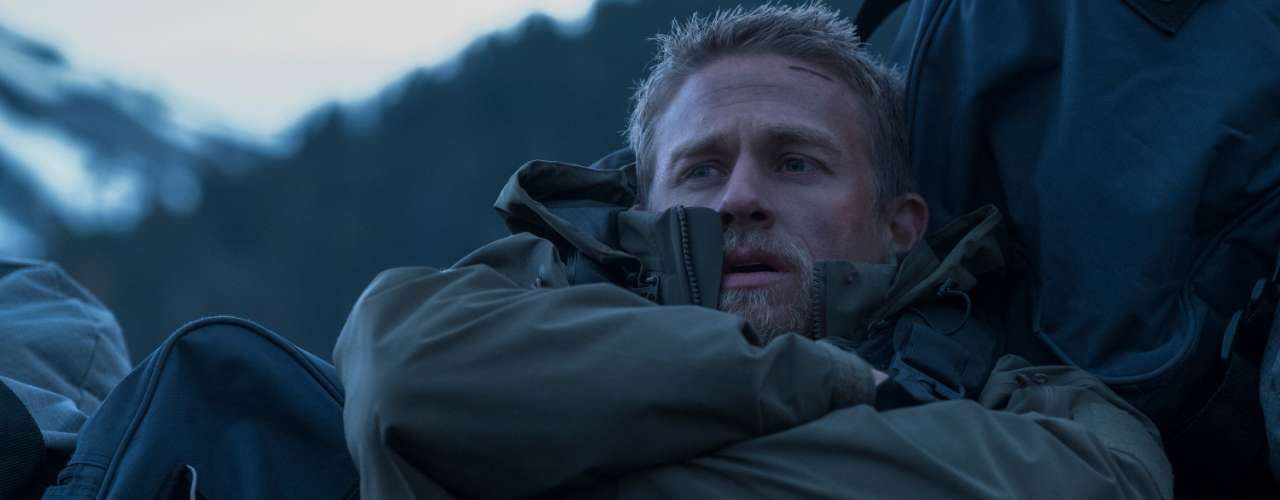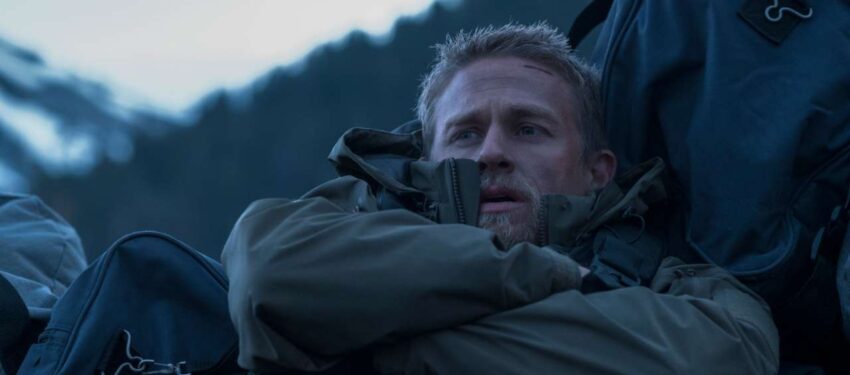‘Triple Frontier’ addresses the importance of unity and community, defines Charlie Hunnam
AN: This interview has been translated via Google Translate. My apologies on any inconsistencies.
Adorocinema.com — In an exclusive interview with AdoroCinema , awarded on the occasion of the release of Hunger’s newest movie, Operation Frontier , Hunnam explained the meanings of JC Chandor’s war drama and action ( The More Violent Year ); opined about the current direction of society; made clear its defense of the distribution and production model instituted by Netflix, increasingly criticized by traditional producers and distributors, such as filmmaker Steven Spielberg ; and, to its dismay, even overthrew one or two myths about filming in nature and in “adverse conditions”:
Question: In your previous work, you played characters who were more impulsive in a way, like Jax Teller of Sons of Anarchy and Beckett in Circle of Fire. In Frontier Operation, however, you play an opposite type of character, the thinker. Now, before doing anything, before acting, your character ponders. He plays the role of the one who reflects on the group. How did you create William “Ironhead” Miller?
Answer: I think what JC thematically explores in the script are the two issues I have been struggling with during my adult life: 1) the nature of the community, the essence of having a tribe around them; and 2) how we find meaning in our lives; without a strong sense of purpose, we can get lost, we can become unhappy very quickly. In my view, Operation Frontier is about this. And in terms of impulsivity … As a filmmaker, JC capitalizes on his interesting characters from his cast.
What he seeks is for his actors to interpret versions of themselves within the context of the narrative. It’s obvious that we are not military men, but the characters have a bit of who we are as human beings. It’s the way he films. Being a joint project and because there are not many details or definitions about the characters in the script, JC encouraged us to bring the most of ourselves to these characters. I think in many ways Miller is closer to my nature than any other character I’ve played before because I’m also very, very methodical and avoid impulsive behavior.
Q: This is really interesting because the film addresses the clash between individualism and the idea of ??the universality / brotherhood that forms the basis of the group of soldiers. Operation Fronteira confronts individual and global solutions to general problems. And to return alive to the United States, the five soldiers must stay together and trust each other. Do you believe that this is the message of the film: the importance of unity, especially in increasingly individualistic times?
A: Yes, I think so. The cost of individualism is the loss of the community. In the end, if we look historically for the human way of life, and for what can be defined as a more harmonious era of humanity, we will find a predilection for egalitarian systems based on a strong sense of community. And this does not mean that there is no room for individuality within a community, for an individual way or structure of life. But the need to raise individualism worries me. You are who you are, but as the population grows, the summit should be the community. We do not need to focus on individualism: this is self-indulgent and unnecessary, you are who you are. If you act authentically in the context of your life, you will be who you are. You do not have to alienate the rest of society to promote your individuality.
P: Operation Fronteira is also very real, in addition to his ideas, regarding the setting of the plot: the film takes place in the Triple Frontier, which separates Brazil from Argentina and Paraguay. And it is quite interesting, from a Brazilian point of view, to see a film that takes place in this locality, unfortunately known for its conflicts related to drug trafficking. Have you studied the history of the border or the countries involved during your preparation for the film?
A: A few years ago, I worked on another project as a screenwriter and producer, who was deeply interested in the South American drug trade, mainly focusing on the Colombian context and the Colombian monopoly on illicit drug trade. And, of course, how that evolved into Mexico’s takeover. So, in this research, I came across data on Paraguay, Argentina, and Brazil, but these countries were not exactly the focus of my research. Anyway, I already had a good knowledge of how and why this region of the world became what it is.
Q: How was filming action sequences in the jungle in the midst of nature? Was it very challenging? Has your experience with Z – The Lost City helped you in this process?
A: I am a lover of nature, certainly learn a lot in my explorations and adventures in nature. All the things I choose to go through will always be far more extreme than the things I live on a film set. And it’s funny. I realized there is a narrative that has developed over the past two or three years where people love to create stories about how difficult it is to make a movie. Let me tell you something, man: it’s all a lie. The experience of making a movie is very comfortable, there is a lot of money involved, several people employed to ensure the highest possible safety of the staff and the cast.
There is nothing, there is no physical requirement to film. People simply love to create these narratives around themselves and their experiences to possibly feel heroic. Do not know. Whenever I’m asked about the difficulty of making a movie, I get confused. Creatively, it’s difficult. Intellectually, making a movie is difficult. These are the complicated areas that can make you achieve excellence in the universe of cinema. But the physical demands are non-existent most of the time.
P: Operation Frontier is a Netflix original, which means the movie will be released worldwide. And the industry is changing very quickly because of the intervention of the streaming platforms, a scenario contradicted by traditional distributors: it is a certain crisis of traditional cinema, so to speak. What is your view on this new state of affairs in the film industry?
A: As in all industries, there is a saturation point, a point of self-cannibalization. The traditional distribution model of movie theaters had been in crisis for years. It has become very expensive to compete on the weekends of greater visibility, whether for a summer movie or for an Oscar movie. This has radically reduced the amount of films that are produced, and also the type of films that are produced. Specifically, if there were no recognized brand involved in the production, a certain budget film could not be made. And what the streaming platforms did was revamp the movie community: Netflix is ??willing to produce these clever and original mature dramas,
It’s hard to compete with companies like Marvel and these gigantic franchises. They are films that monopolize the weekends, and a year has only 52 weekends. When I started working in the industry, approximately 650 films were made per year by the studios. Today, there are less than 100 a year. Because of the money that is spent by the studios and because the competition to monopolize a weekend became so fierce, the amount of films produced was radically reduced. This is bad for the film community and also bad for viewers. And Netflix has been doing an exceptional job of battling for and producing smaller but mature and intelligent content.

